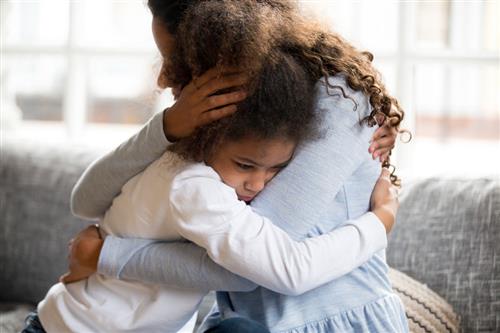Return to Headlines
How do preschoolers experience grief?
June 12, 2020
 At this age children find it hard to understand that death is permanent.
At this age children find it hard to understand that death is permanent.
They are also at a stage of magical thinking, for example, thinking someone will come alive again or thinking somehow they made someone die. They understand separation, though, and feel insecure and frightened when the familiar things around them change. This age group needs a lot of reassurance that they will be safe and looked after.
Common reactions
- Looking for the person who has died
- Dreams, or sensing the presence of the person who has died
- Fearfulness, anxiety
- Clinginess
- Being fretful, distressed
- Being irritable; having more tantrums
- Withdrawing, being quiet, showing a lack of response
- Changes in eating
- Difficulty in sleeping
- Toileting problems, bed wetting, soiling
- Regressing in progress; for example, returning to crawling, wanting a bottle
How to help your child
- Keep routines and normal activities going as much as possible
- Tell them you know they are sad – start to teach and use words that describe feelings
- Tell them they are safe, and who is looking after them
- Comfort them with hugs, cuddles, holding their hand, and by encouraging them
- Speak calmly and gently to them – and be calm around them
- Explain death as part of life, so they come to understand it bit by bit. Using some examples in nature may be helpful, such as watching plants grow, bloom and die or seasons change
- Provide comfort items, such as a cuddly toy, special blanket etc
- Encourage play – children can often use play to help them process what's happened; for example, sand play, puppets, dolls, writing, drawing, painting and various physical activities
Source: kidshealth.org

